
Blossom glows brightly
The picnic bench invites me to dwell awhile, under the umbrella of white blossom. A cock pheasant paces back and forth behind me, rhythmically calling, steady squeaks, like a foot pump. His colours and markings remind me of the caged birds in the park when I was a child. My favourite was the Golden Pheasant, native to the mountains of China, with a golden crest, scarlet body, blue wings and a stripy orange ruff (like a cape). Now there are feral populations in the UK and elsewhere in Europe. There’s at least one bird in my local woods, though I’ve never spotted him.

When you’re too stressed to connect with nature
In recent years nature connection interventions have become more common in parks, gardens, nature reserves and heritage settings. Their wellbeing programmes range from self-guided activities accessed via QR codes or printed guides, through to facilitated sessions with expert guides.
Sometimes it doesn’t matter how beautiful the setting, and how well designed the guidance, it’s just not possible to relax and enjoy the moment. Maybe you’re too tired, have a worrying thought that won’t leave you alone, or just can’t switch off your busy mind.
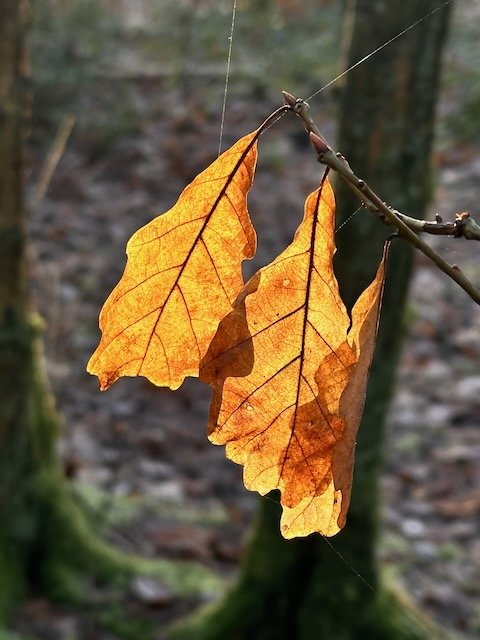
Seeking reverie
The woodland soundscape is all hiss and rasp of dry leaves. Birds rustle through brittle undergrowth, foraging for food. Above, I hear the prickly whispers of brown oak leaves clinging on to twigs, in defiance of the wind. There are one or two bird calls, but mostly the forest has an airy, quiet feel, that helps me to breathe a little slower and drop my pace.

January Bird Song
It feels particularly ‘heart-warming’ to hear birds calling at the beginning of the year, bringing an optimism about the advancement of spring. After the quiet ‘hunkering down’ vibe of December there’s a definite lift in energy from here on. The robin song is especially welcome, as they start to establish breeding territories in readiness for spring.
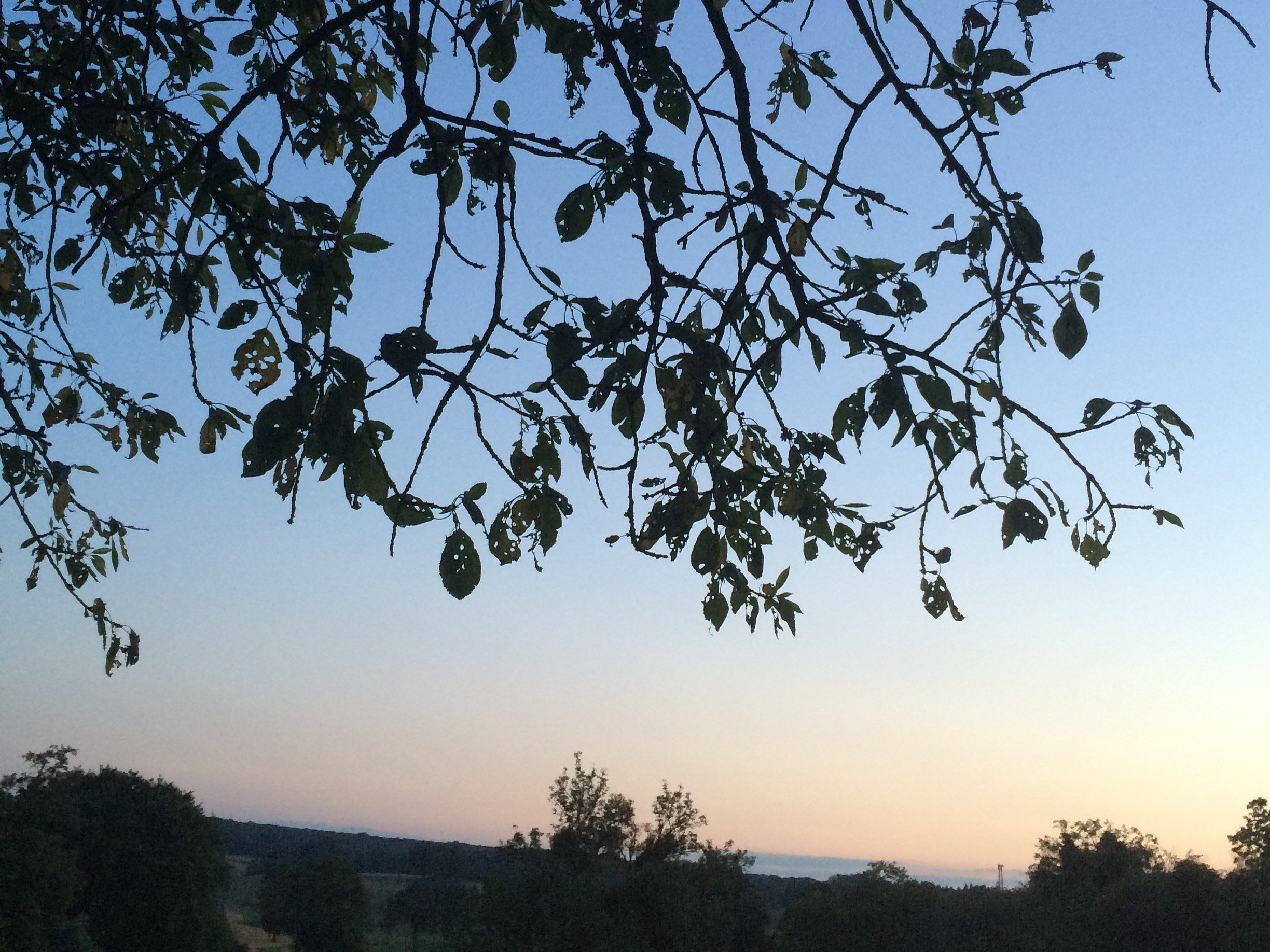
Reconnect with the healing power of nature
This is a time of year when we can feel more isolated and become disconnected from nature, spending more time indoors cut off from the world. Out in the woods, the birds are beginning their mating rituals and the acorns are nestled into the womb of the earth waiting for the warmth to wake them.

Inviting Awe and Wonder
Awe is critical to our sense of wellbeing and has the effect of calming our nervous system and triggering the release of oxytocin, the so called ‘love hormone’ that promotes trust and bonding. Awe is also shown to help us keep things in proportion and be little less self-preoccupied.

Gifts to inspire connection
I am offering free P&P on all sales from my online shop this month

Nature Connection Manifesto
As a visual artist who primarily works in solitude, I welcomed the opportunity to collaborate with other researchers at the University of Huddersfield. My contribution involved sharing my practice of mindful nature connection, using it as a source of inspiration for new artworks.

A Time for Reflection
November feels like a time for reflection, a time for losing myself in sensory moments; a wisp of smoke in the air, or the rustle of fallen leaves keeping me sensitive to the changing seasons.

This is the last time
The only sound is the rhythmic purring of the wood pigeon and the breeze rattling the dry leaves on the butterfly bush, grown huge over the summer. A peacock butterfly dazzles on one of the few remaining flowers, not yet gone to seed.
Learn to savour the moment and strengthen neural pathways to revisit these moments of sanctuary.

The Magic of Twilight
I’ve always loved the time when day loses itself into night. The ebbing of the light is magical for me at any time of the year, but in February I run contrary to popular opinion in my longing for a bit more dark wintering time. The dark days bring me a sense of comfort, meeting my need to withdraw and rest.

Resilience
We tend to think that resilience is about being strong, keeping going in adversity, not giving in. Powering through.
But the science proves this wrong and there’s lots of evidence that overwork and exhaustion are the opposite of resilience.
In biology there’s a concept called homeostasis which maintains a constant internal environment in the body to continuously resource and sustain wellbeing. it takes more time and energy to maintain and restore this state if we don’t rest.

Our Broken Relationship with Nature
it is widely recognised that we are losing the language to describe nature. And if we don’t have the words for it, how will we recognise things like biodiversity loss. Words that describe nature appear less in contemporary literature and film than they did a decade ago as our lives become more urbanised.
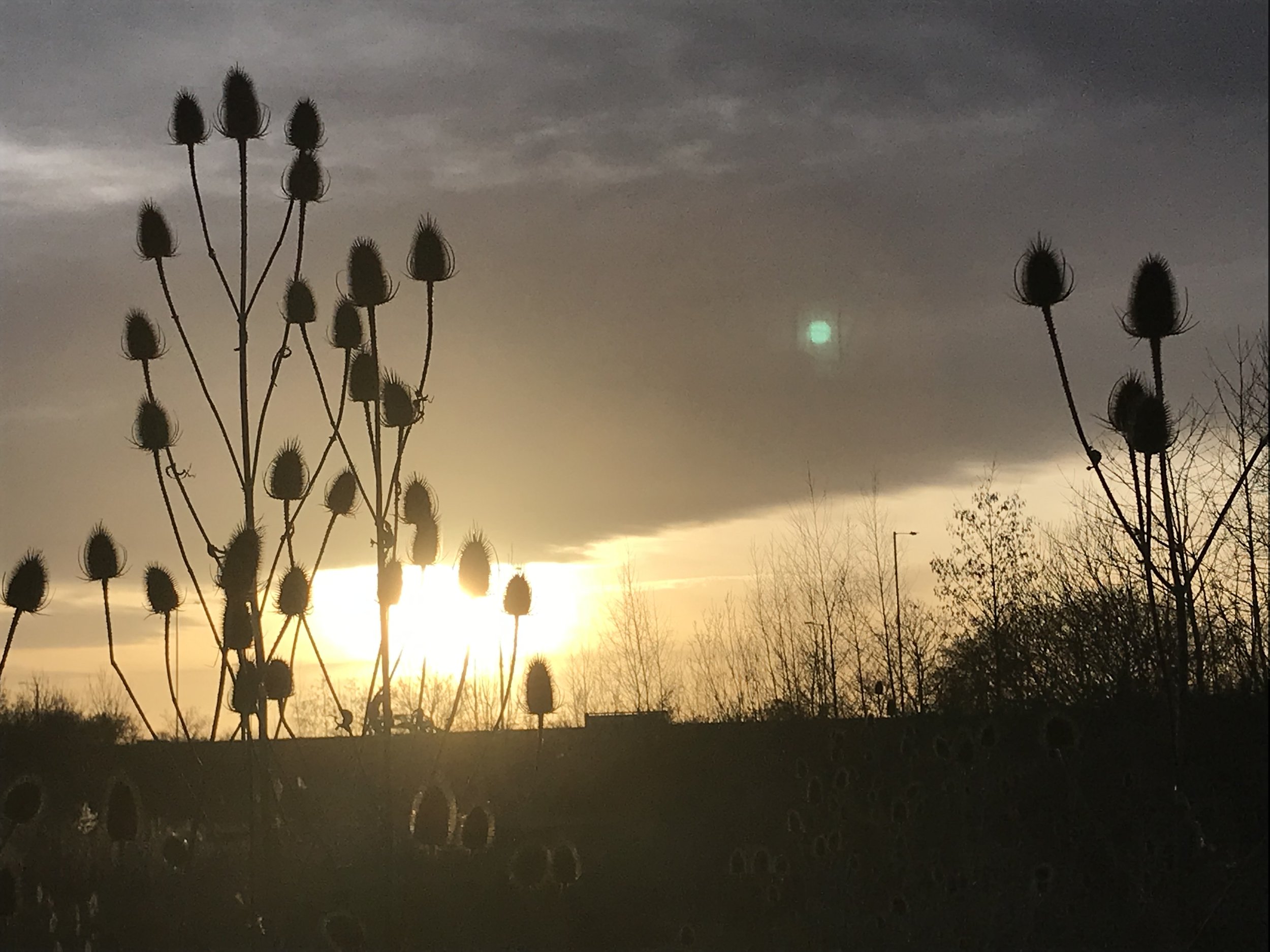
What are all the benefits of connecting with nature?
I’m always a bit nervous of this question because there’s so much evidence that developing a meaningful relationship with nature can have such a broad range of benefits that it sounds too good to be true. But the scientists are in overwhelming agreement, it really does have far-ranging benefits.

Connecting with nature online to reduce anxiety
Unfortunately green spaces like parks, beaches or woodlands are not accessible to everyone. For example, some people don’t live near to a green space, or don’t feel safe going there. People may not have transport or money to get to green spaces, or those spaces may not be accessible due to disability or illness.

Contact with Nature versus Connection with Nature
There is a difference between having contact with nature and connecting more deeply with nature. Contact happens when we walk through the park, but our attention is elsewhere – perhaps planning whatever we’re going to do when we reach our destination, or thinking about a recent conversation. We might even be enjoying the scenery or appreciating the brightly coloured flowers but we’re not really taking time to absorb ourselves in this experience – so we’re missing out on the full benefits.
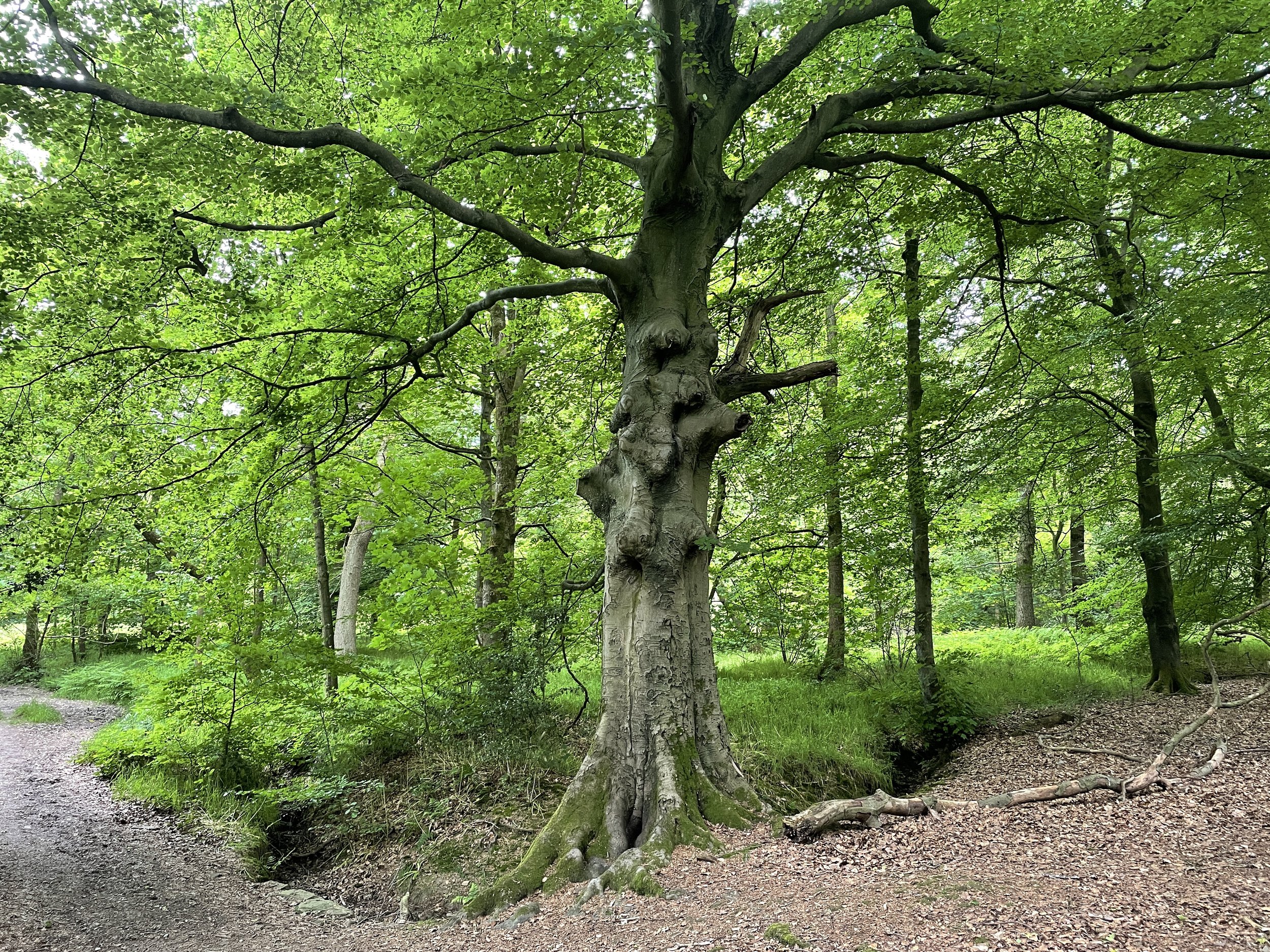
Can nature help reduce anxiety?
There is overwhelming evidence from hundreds of international studies that connecting with nature online and outdoors can help improve reduce ruminating and anxiety.
Many of these studies have been replicated in different settings with different control groups and they all agree that being in nature is good for our mood and general wellbeing.
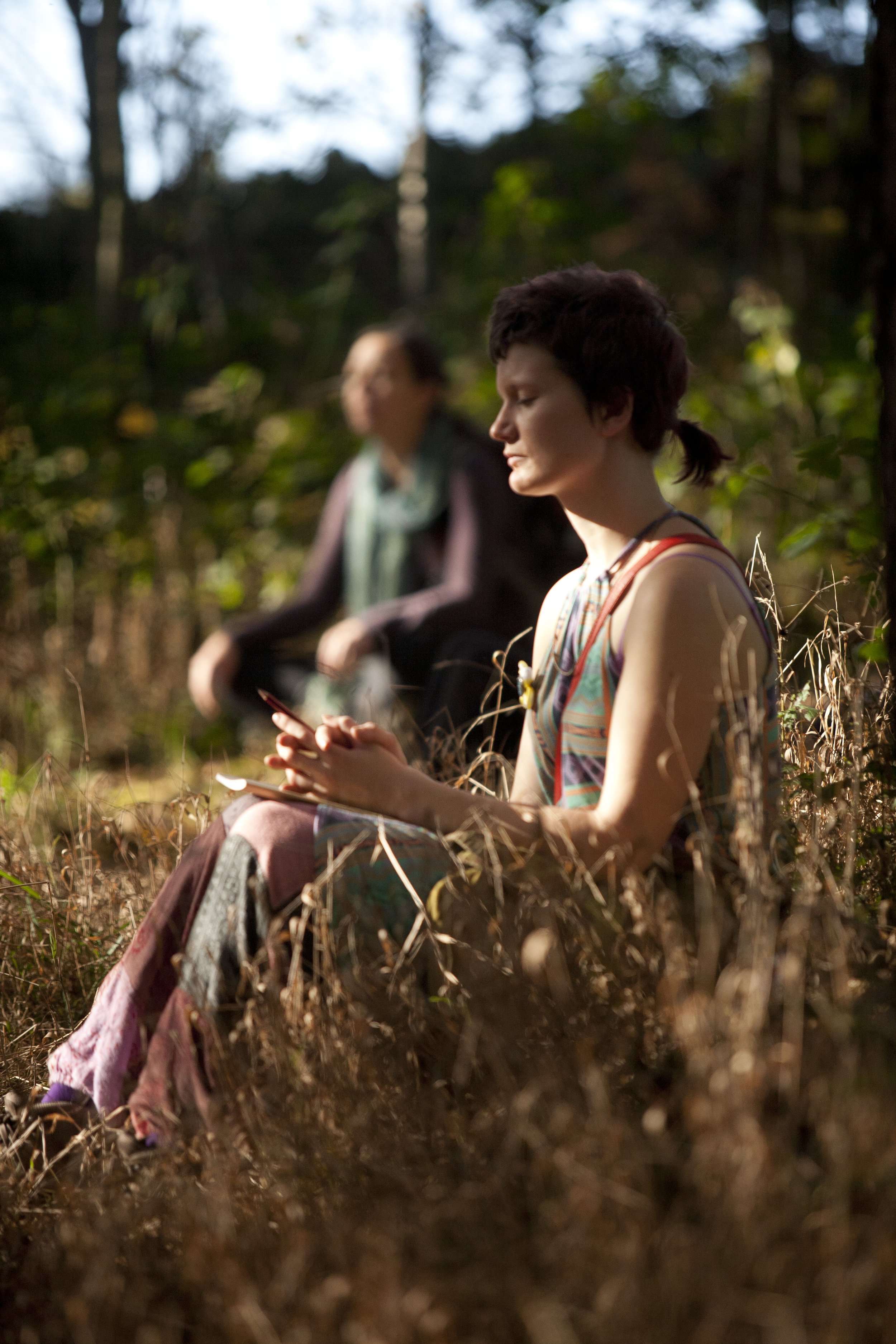
Key Principles of Connecting with Nature for Mental Health
When I first started connecting with nature for my own wellbeing I noticed that sometimes it seemed to ‘work’ better than others. I became curious to understand why; could I create the perfect recipe for ‘optimum nature connection’ – and were there things that dampened the experience - things I needed to avoid?

Urban Nature Connection for the wellbeing of people and planet
There are lots of indicators that our relationship with nature is breaking down as our urban lives become faster paced, cocooned from the impacts of our own wasteful consumerist behaviours and attitudes; we only need to consider climate change or the crisis of biodiversity loss to see this is true. Simultaneously, antidepressant prescriptions in the UK have almost doubled in ten years and severe mental illness is on the rise with more young people being particularly susceptible.

Why connecting with nature is important to me
It really is reassuring to walk through a woodland and fall into step with a world that is comfortable with itself and makes no demands - nature knows exactly what it should be doing, whether that’s squirrels hiding caches of nuts in the autumn, stoats in their winter coats in the snow winter or birds staking out territories in the spring.
